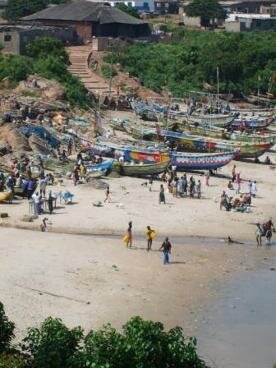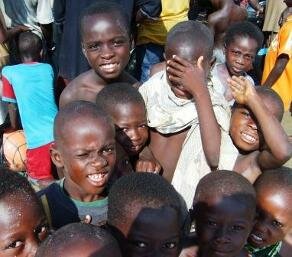|
Ghana
Traveling information
- Passport and Visa
- Health Care
- Money
|
 |
Passport and Visa Information
Visa and Immigration
Visa must be obtained prior to arrival and are required by all except nationals of Benin, Burkina Faso, Cape Verde, Côte d'Ivoire, Gambia, Guinea Republic, Guinea-Bissau, Mali, Mauritania, Niger, Nigeria, Senegal, Sierra Leone, Togo and Zimbabwe. You cannot get a visa or entry permits on arrival at the border or airport. Visas can be extended once in the country.
Visa requirements can change at any time - we recommend you contact your local representative to find out the latest requirements.
Visa Application Requirements
- Valid passport
- Completed entry permit application form, four copies
- Four passport pictures
- Airline ticket
Health Care
Health insurance is essential, preferably with cover for emergency evacuation. Medical facilities exist in all the regional capitals as well as in most towns and villages. Emergency medical facilities are extremely limited.
Vaccinations
A yellow fever vaccination certificate is required by all nationalsentering the country.
Following WHO guidelines issued in 1973, a cholera vaccination certificate is no longer a condition of entry to Ghana. However, cholera is a serious risk in this country and precautions are essential. During the rainy seasons (May to July and Sept to Oct) there are seasonal outbreaks of Cholera. Current outbreaks are occurring in parts of Accra and Kumasi. Up-to-date advice should be sought before deciding whether these precautions should include vaccination as medical opinion is divided over its effectiveness; see the Health appendix.
Immunisation against typhoid is usually advised. An outbreak of Poliomyelitis occurred in 2003.
Malaria risk, predominantly in the malignant falciparum form, exists all year throughout the country.
Food and drink
According to the Ghanaian High Commission in London, tap water in cities is safe to drink. Other water sources should be regarded as being potentially contaminated, and water used for drinking, brushing teeth or making ice should have first been boiled or otherwise sterilised. Milk is unpasteurised and should be boiled. Powdered or tinned milk is available and is advised, but make sure that it is reconstituted with pure water. Avoid dairy products which are likely to have been made from unboiled milk. Only eat well-cooked meat and fish, preferably served hot. Pork, salad and mayonnaise may carry increased risk. Vegetables should be cooked and fruit peeled.
Other risks
Diarrhoeal diseases, including giardiasis, and typhoid fevers are common. Bilharzia (schistosomiasis) is present. Hepatitis A and E are widespread. Hepatitis B is endemic. Hepatitis C occurs, as do dengue fever and TB. Epidemics of meningitis and meningococcal disease may occur throughout tropical Africa, particularly in the savannah areas and during the dry season. Immunisation against diphtheria is sometimes recommended.
Rabies is present. For those at high risk, vaccination before arrival should be considered. If you are bitten, seek medical advice without delay.
Swimming. Take the usual precautions at beaches, and of course be aware of rip tides. Avoid swimming and paddling in fresh water except of course in swimming pools that are well chlorinated and maintained.
Money
Official Currency: 100 pesewas=1 Ghana cedi
|
Currency Converter
|
 |
The Cedi is far from stable and fluctuates against foreign currencies daily. Bank rates are slightly lower than those obtained from Forex bureaus. Barclays Bank will accept Visa and MasterCard for cash advances. Unused local currency can not be re-exchanged.